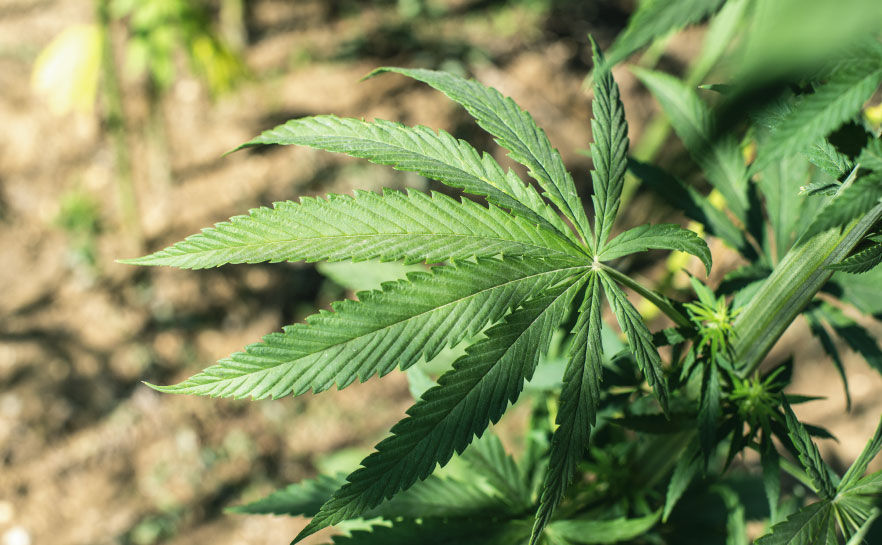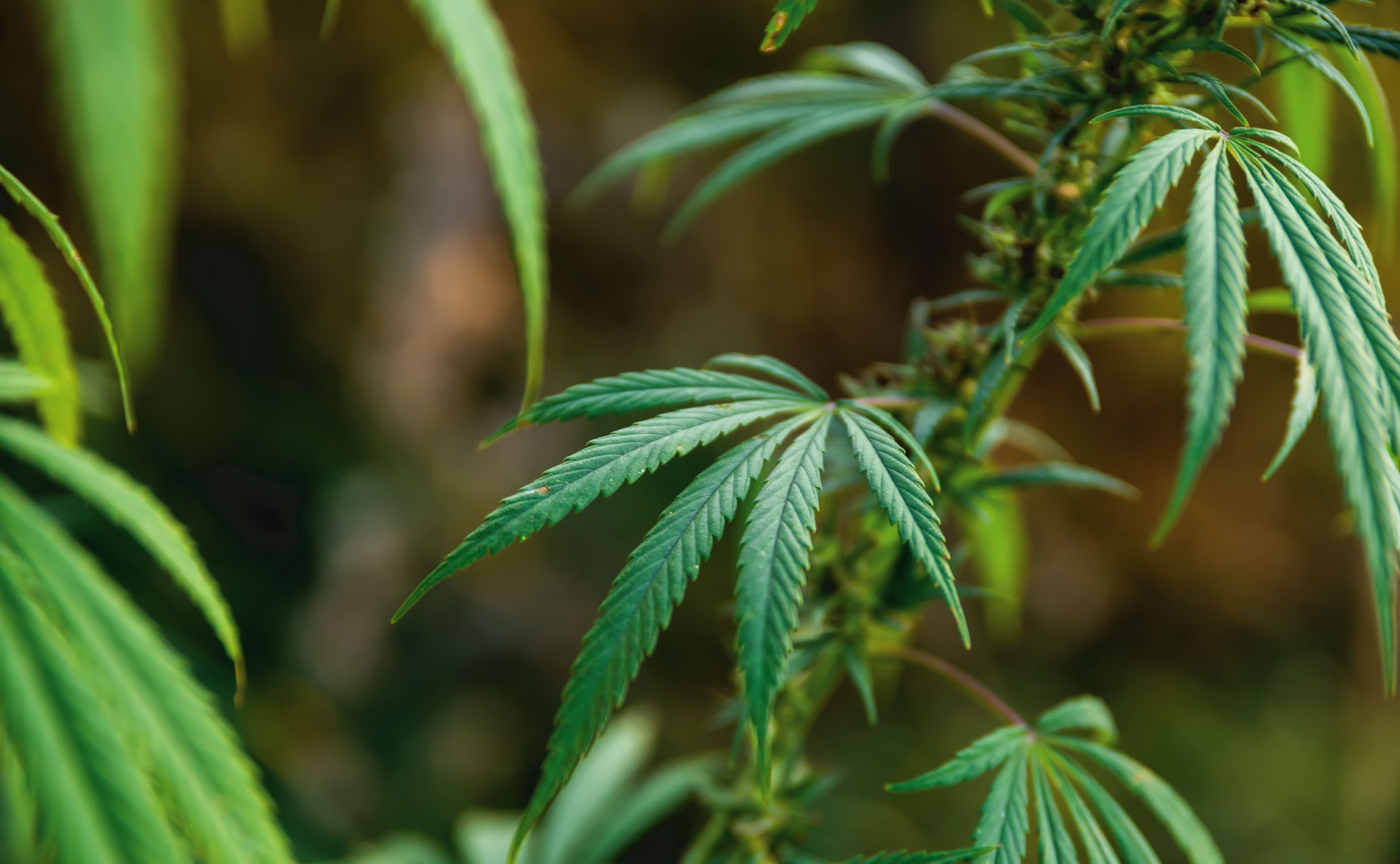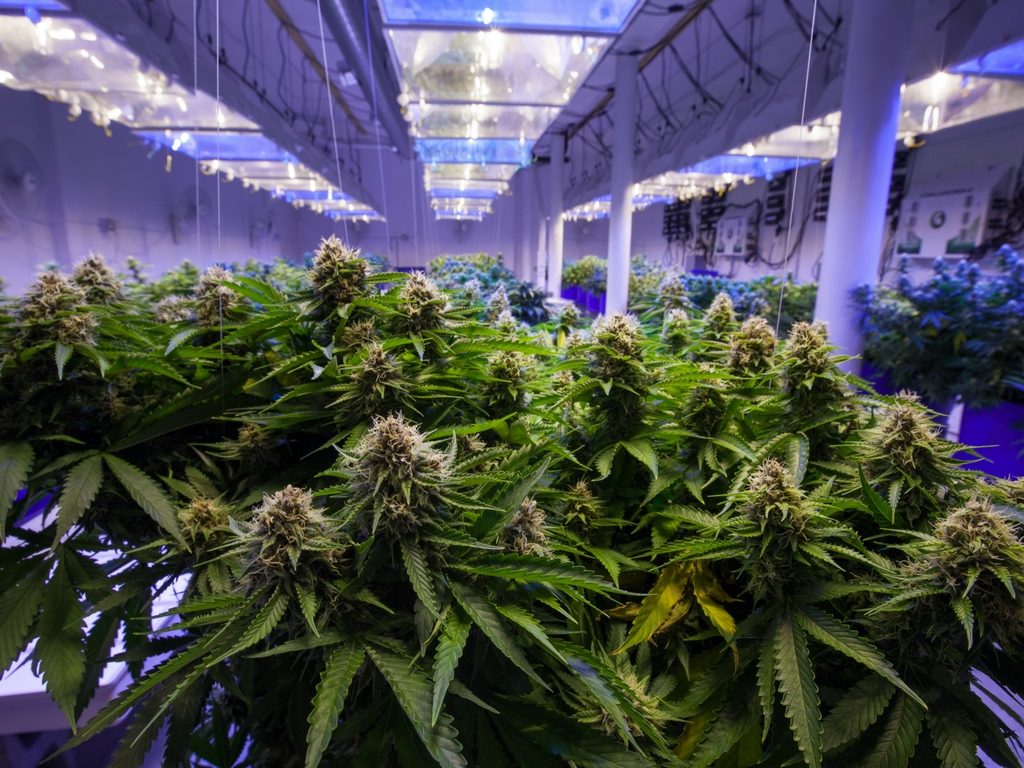ACT Resources Cannabis News – October 2019
The cannabis industry is the fastest-growing and perhaps most exciting industry to be involved in today. Whether it’s the ongoing push for legalization, new regulatory developments at the federal level, or just the shifting culture of a society that is openly integrating cannabis into public life for the first time in nearly a century, there’s no shortage of news when it comes to cannabis. To help you keep your finger
on the pulse, we’re looking back at five of the big headlines that caught our eye in recent weeks.


SAFE Banking Act passes House of Representatives
The Secure and Fair Enforcement (SAFE) Banking Act passed in the House of Representatives last month by an overwhelming vote of 321 to 103, which included nearly half of the Republicans in the chamber. The SAFE Banking Act would provide much needed protections to financial institutions working with state-legal cannabis businesses. Those protections do not exist today, as the federal prohibition of cannabis puts banks at risk of losing their FDIC status over accusations of money laundering.
The lack of basic banking services has been a major challenge for cannabis businesses. The cannabis industry remains a cash-heavy environment and even ancillary cannabis businesses that never touch the plant are at risk of having their banking pulled out from under them. The SAFE Banking Act would help resolve those issues and open banking services to state-compliant cannabis businesses. But first, the legislation has to make it through the Republican-controlled Senate. It is unclear if Senate Majority Leader Mitch McConnell (R-Ky.) will bring the legislation to the floor for a vote. If he does, however, it is unclear whether the legislation would survive a vote in the chamber.
New York, New Jersey, and Connecticut to Discuss Regional Legalization
On September 25, New York Gov. Andrew Cuomo announced that he would seek a “regional symmetry” with Connecticut and New Jersey when it comes to cannabis legalization. Essentially, Cuomo was arguing for a uniform, regional approach to legalization and regulation. He also expressed interest in working with Massachusetts Gov. Charlie Barker, who presides over a state where cannabis is currently legal for adults aged 21 and older.
Cuomo visited Connecticut to meet with Gov. Ned Lamont in Hartford the day after he made the comments about regional legalization, where the two presumably discussed the idea. That meeting is reportedly the first of a series of meetings the governors will hold to seek a regional approach to cannabis legalization. Could a regional approach to legalization put additional pressure on the federal government and the country’s most pro-cannabis Congress to take further action? Legal cannabis businesses and state lawmakers interested in promoting legalization efforts in their home states should keep an eye on these developments in the Northeast.


U.S. Food and Drug Administration (FDA) Delays Hemp-derived CBD Regulations
Despite a soft deadline of September 30, the date came and went without any new regulatory guidance on hemp-derived CBD from the FDA. For a sector of the cannabis and hemp industry that has endured uncertainty, harsh warning letters, and products pulled off store shelves, the agency’s silence was disappointing.
The FDA has repeatedly signaled that hemp-derived CBD companies that make “egregious health claims” in their marketing materials are in violation of federal rules. Further, the agency has stated that adding hemp-derived CBD to foodstuffs and beverages is also illegal because CBD is a primary ingredient in an FDA approved pharmaceutical product.
Beyond these guidelines, though, the FDA has yet to release a full regulatory update since it became the primary federal authority on hemp-derived CBD products. Industrial hemp and hemp-derived CBD were descheduled from the federal Controlled Substances Act in December 2018, when President Donald Trump signed the 2018 Farm Bill. That law removed hemp-derived CBD products from the purview of the Drug Enforcement Agency and placed it squarely in the scope of the FDA. However, suppliers and producers of hemp-derived CBD products remain cautious without much explicit guidance of how to proceed in compliance with federal regulators.
If you would like to make a public comment about how the FDA should proceed with hemp-derived CBD regulations, the agency is accepting submissions in the federal register.
Pennsylvania’s Governor Calls for Adult Use Legalization
Late last month, Pennsylvania Gov. Tom Wolf publicly announced his support for legalizing adult use cannabis for adults aged 21 and older. The announcement was a departure from the governor’s previous position, which was open to legalization only if there was enough support among Pennsylvania residents. His shift in tone came on the heels of a statewide fact-finding mission by Lt. Gov. John Fetterman, who visited every Pennsylvania county to gauge residents’ support for legalization.
Just days after Wolf made his announcement, state Representative David Delloso introduced a cannabis legalization bill in the General Assembly. Delloso’s bill would amend a 1951 law regulating alcohol sales to include rules for selling cannabis as well. If the bill were passed and signed into law, Pennsylvania would become the 12th state to legalize adult use cannabis and the second state to legalize it through the state legislature.


The Impact of Counterfeit THC Cartridges on Cannabis Vaping
News of vaping-related illnesses, apparently tied primarily to counterfeit THC cartridges, has mounted as cases in the U.S. have topped 1,080 across 48 states. Eighteen deaths have been confirmed in 15 states. Officials at the Centers for Disease Control and Prevention (CDC) cite counterfeit pre-filled vaping cartridges as the primary source of the illnesses, though no single product or chemical has been linked to the illnesses.
Some states have reacted swiftly. Massachusetts banned all vaping products for four months, for example, taking everything off the shelves from pre-filled THC cartridges to nicotine products. That ban was challenged in federal court earlier this month but was upheld. Other states, including New York and Michigan, have moved to ban flavored e-cigarettes.
When news of the vaping illnesses initially broke, cannabis vaporizer and vape product demand slumped. However, demand has since leveled off even as more illnesses have been documented. The CDC’s announcement that most affected patients obtained their pre-filled cartridges from unlicensed sources on the black market could have contributed to the rebound in vape sales in legal states. Although sales vary from state to state. In Colorado, vape pens are down to 11% of cannabis sales from 19% in June. In California, on the other hand, vape pens ticked back up after an initial drop off and now account for roughly 25% of all cannabis sales.
The cannabis industry is evolving rapidly as new laws and trends emerge. An industry in its early stage offers opportunities to entrepreneurs of all backgrounds and skill sets. However, to emerge successful in a dynamic environment, you need a professional accounting partner with the ability to act on behalf of your financial interests. ACT Resources is here to help assist with your financial and accounting needs, bringing a special focus in the cannabis industry to the table. If you live, breathe, and work in cannabis every day, then don’t wait any longer – ACT today.





